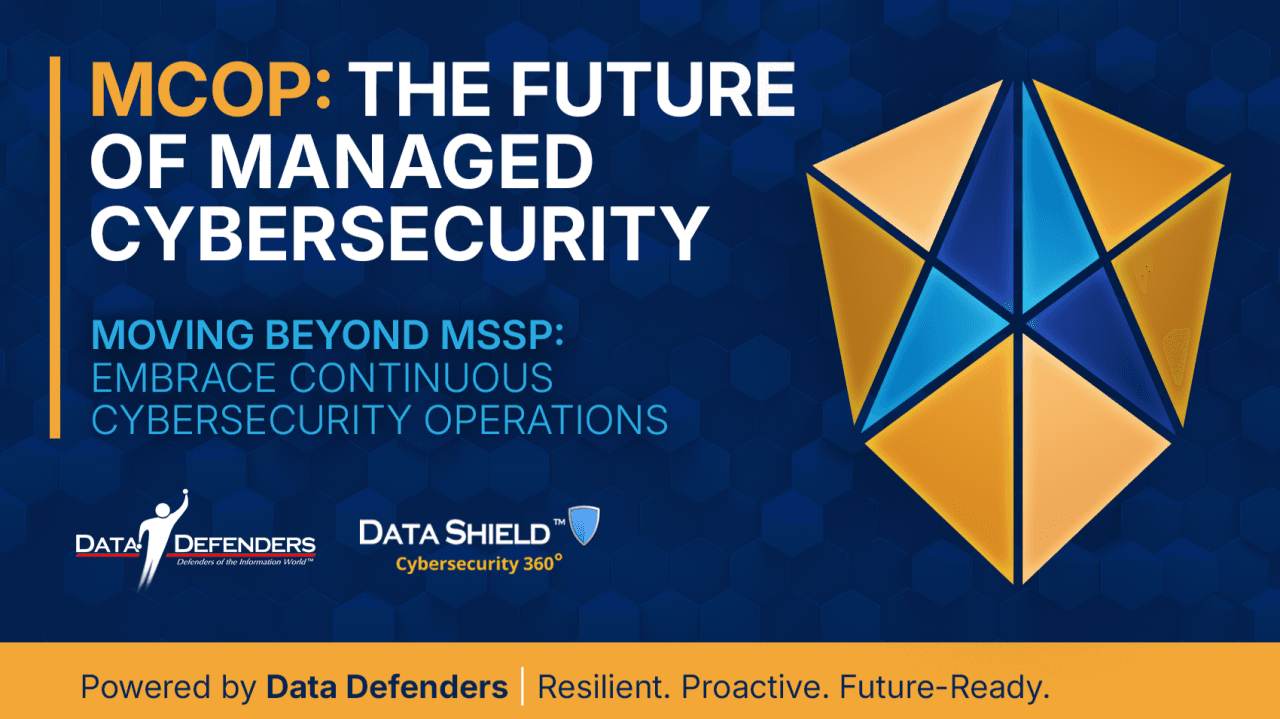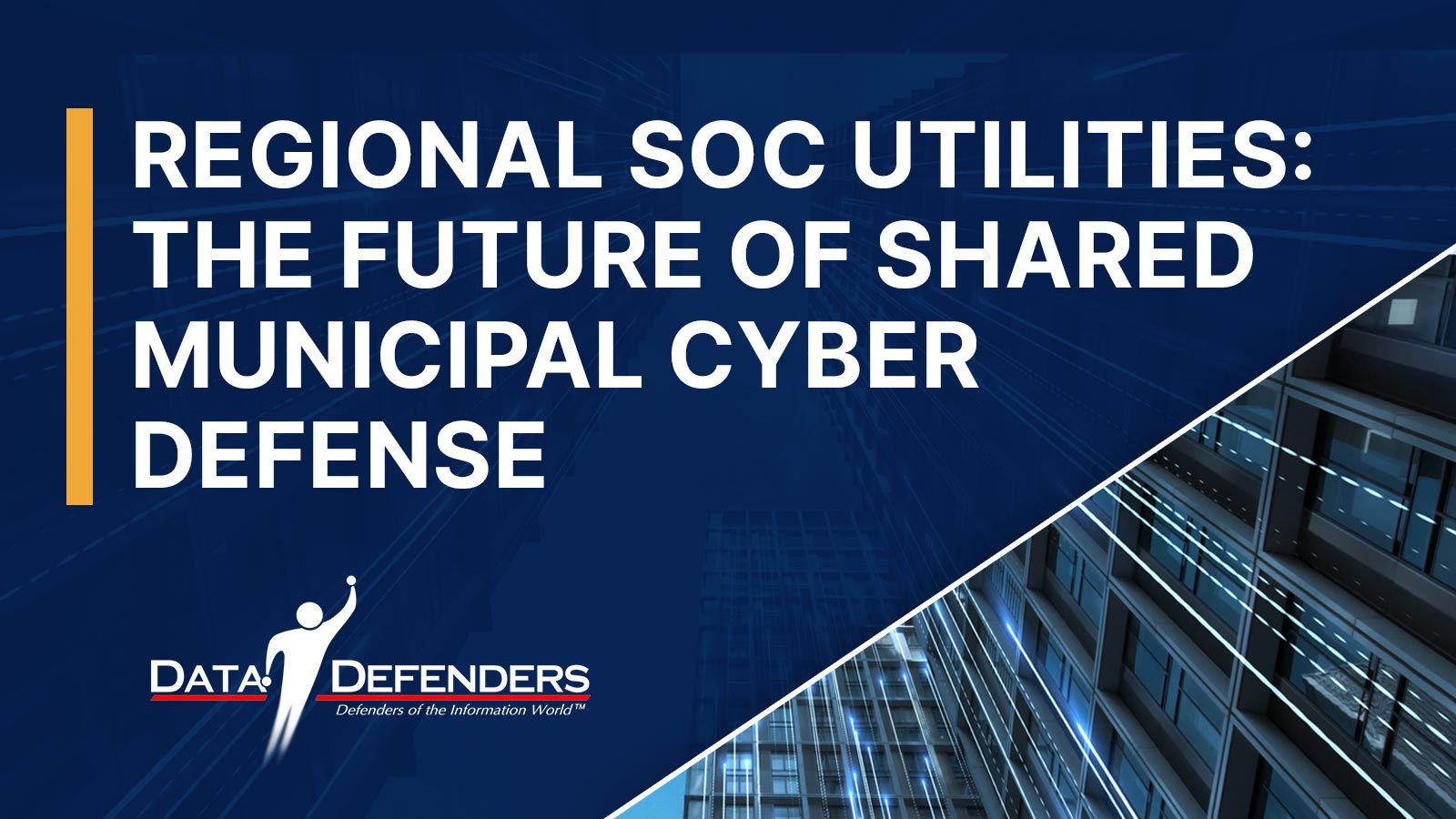Why MCOP is the Future of Managed Security
Introduction
The cybersecurity landscape is undergoing a massive transformation. Organizations no longer seek just security services—they demand proactive cybersecurity operations that continuously monitor, detect, and respond to evolving threats in real time. Traditional Managed Security Service Providers (MSSPs) focus on basic security monitoring and compliance, but as cyber threats become more sophisticated, a new category of provider has emerged: the Managed Cybersecurity Operations Provider (MCOP).
What is an MCOP?
An MCOP goes beyond the conventional MSSP model by providing end-to-end security operations, including:
- 24/7/365 Security Operations Management
- Proactive Threat Detection & Incident Response
- AI/ML-Driven Advanced Threat Analytics
- Cloud & Endpoint Security Operations
- Automated Response & Remediation
- Continuous Cybersecurity Operations Optimization
- Governance & Compliance Support
- Cybersecurity Workforce Augmentation
This proactive approach ensures organizations remain resilient rather than simply reacting to incidents.
How MCOPs Differ from MSSPs

Why Non-Profits and Public Sector Organizations Need an MCOP
Municipalities and non-profits face severe cybersecurity risks but often lack sufficient funding and expertise. A 95% funding gap exists for municipal cybersecurity programs, leaving cities and non-profits vulnerable to ransomware, data breaches, and system disruptions. MCOPs provide cost-effective, scalable solutions that address these challenges by offering:
Budget-Friendly, Scalable Security Solutions: Avoid high costs associated with in-house cybersecurity operations.
Regulatory Compliance Assistance: Meet security standards required by government regulations (NIST Cybersecurity Framework, CISA Compliance Guidelines, NIS2 Directive, PAS 185:2017, and ISO/IEC 27001).
Proactive Incident Response: Prevent ransomware attacks, phishing, and nation-state threats before damage occurs.
Workforce Augmentation: Bridge the cybersecurity talent gap with managed security operations.
Advanced Threat Intelligence: Protect sensitive citizen and donor data from sophisticated attackers.
Case Study: City of Aurora, IL’s Cybersecurity Transformation
The City of Aurora, Illinois faced significant cybersecurity challenges before partnering with Data Defenders. Limited budgets, workforce shortages, and rising cyberattacks made in-house cybersecurity unfeasible.
By implementing DataShield Cybersecurity 360°® and DataShield Analytics®, Aurora strengthened its security posture and achieved:
- 35,331 Threats Detected and Mitigated
- 351 High-Severity Threats Eliminated
- Zero Major Security Incidents
This demonstrates how MCOPs enable municipalities and non-profits to efficiently manage cybersecurity operations, eliminating the shortcomings of outdated MSSP models. (Related video: "Why Did Aurora Choose Data Defenders?" Linked Here)
Why Data Defenders is Leading the MCOP Movement
At Data Defenders, we don't just follow industry trends—we redefine them. We've embraced the MCOP model because we believe cybersecurity must move beyond passive monitoring toward continuous, resilient operations. By shifting from the traditional MSSP approach to a proactive, operations-first model, we ensure that every client has the real-time protection, threat intelligence, and operational agility they need to stay ahead of evolving threats.
Early adopters of this operations-first mindset are gaining a competitive edge—and we're proud to be leading that charge.
Key Benefits of the MCOP Model with Data Defenders
1. Proactive Threat Mitigation & Resilience Unlike MSSPs that primarily focus on monitoring, Data Defenders actively hunts, detects, and neutralizes threats in real-time using AI/ML-driven analytics and DataShield Cybersecurity 360°®. (Related video: "What Does a Strong Cybersecurity Foundation Look Like for a City Like Aurora?" Linked Here)
2. Cost-Effective Security Operations Building an in-house Security Operations Center (SOC) is prohibitively expensive. Research shows an in-house SOC costs over $3 million annually, whereas Data Defenders delivers a fully operational MCOP at 77% less cost. This makes cybersecurity accessible for municipalities and non-profits without draining resources. (Related Whitepaper: City of Aurora Cybersecurity Case Study)
3. Seamless Workforce Augmentation With a global cybersecurity workforce gap of 3.4 million, many organizations struggle to hire skilled professionals. Data Defenders bridges this gap by embedding trained security experts within operations, ensuring 24/7 monitoring and response without adding staffing burdens.
4. Compliance & Governance Alignment Municipalities and non-profit organizations must comply with complex cybersecurity regulations, including HIPAA,PCI-DSS, GDPR, and state/federal mandates. Data Defenders’ Cybersecurity Operations 2.0® framework ensures full compliance, reducing regulatory risks and improving audit readiness.
5. AI-Powered Cybersecurity Operations Traditional security models rely heavily on manual oversight. DataShield Analytics automates threat detection, response, and intelligence gathering, leveraging AI to enhance decision-making and efficiency. (Related video: "How Has the Partnership With Data Defenders Elevated Aurora’s Cybersecurity Posture?" Linked Here)
Redefining the Future of Cybersecurity
As cyber threats evolve, municipalities and non-profits must move beyond outdated MSSP models and embrace continuous, operations-driven security. Data Defenders is at the forefront of this shift, offering the expertise, technology, and operational efficiency needed to protect critical infrastructure, donor data, and essential services.
Conclusion: MCOP is the Future
The future of cybersecurity lies in continuous operations, not static services. Data Defenders, LLC is leading this transformation, setting new standards for managed cybersecurity operations.
Now is the time to move beyond MSSPs and embrace MCOPs—because cybersecurity isn’t just about security anymore. It’s about ensuring continuous, resilient operations for the organizations that serve our communities.
This article was originally published on LinkedIn.


